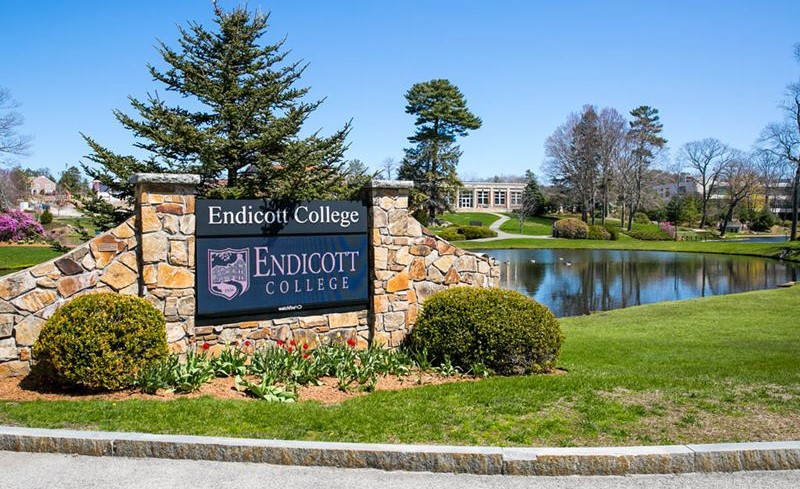Erskine Academy 2nd Trimester honors (2024-25)

Erskine Academy
Grade 12
High Honors: Emmett Appel, Emily Bailey, Bryana Barrett, Geneva Beckim, Octavia Berto, Jayda Bickford, Lauryn Black, Brooke Blais, Madison Cochran, Lauren Cowing, Lillian Crommett, Gabrielle Daggett, Aydan Desjardins, Aidan Durgin, John Edwards, Ryan Farnsworth, Josiah Fitzgerald, Hailey Garate, Brandon Hanscom, Serena Hotham, Kailynn Houle, Ava Kelso, Sophia Knapp, Bodi Laflamme, Brooke Lee, Jack Lucier, Owen Lucier, Eleanor Maranda, Jade McCollett, Abigail McDonough, Madison McNeff, Addison Mort, Thomas Mullens, Makayla Oxley, Elsa Redmond, Justin Reed, Carter Rau, Lillian Rispoli, Nathan Robinson, Laney Robitaille, Carlee Sanborn, Joslyn Sandoval, Aislynn Savage, Achiva Seigars, Jordyn Smith, Zoey Smith, Larissa Steeves, and Clara Waldrop.
Honors: Noah Bechard, Rylan Bennett, Kaleb Bishop, Carter Brockway, Dylan Cooley, Andra Cowing, Kaden Crawford, Trinity DeGreenia, Brady Desmond, Chloe French, Wesley Fulton, Ellie Giampetruzzi, Kaylene Glidden, Abbi Guptill, Jonathan Gutierrez, Echo Hawk, Landen Hayden, Emma Henderson, Alivia Jackson, Montana Johnson, Rion Kesel, Kaiden Kronillis, Chase Larrabee, Shelby Lincoln, D’andre Marable, Shannon McDonough, Colin Oliphant, Noah Pelletier, Ava Picard, Sadie Pierce, Victoria Rancourt, Kyle Scott, Emily Sprague, Katherine Swift, Grant Taker, David Thompson III, Grace Vashon, and Kaleigh Voyles.
Grade 11
High Honors: Connor Alcott, Emily Almeida, Brock Bowden, Addyson Briggs, London Castle, MacKenzie Chase, Nathan Choate, William Choate, Madeline Clement-Cargill, Claire Davis, Sylvia Davis, Joshua Denis, Audryanna DeRaps, Lauren Dufour, William Ellsey Jr., Ethan Frost, Madison Gagnon, Stephen Gould, Madison Griffiths, Willow Haschalk, Mia Hersom, Halle Jones, Kasen Kelley, Timothy Kiralis, Kayle Lappin, Jacob Lavallee, Ava Lemelin, Jaden Mizera, Jack Murray, Elijah Nelson, Bayley Nickles, Ruby Pearson, Elijah Pelkey, Emily Piecewicz, Taisen Pilotte, Hannah Polley, Desirae Proctor, Jackie Sasse, Edward Schmidt, Kathryn Shaw, Madelynn Spencer, Kayla Stred, Abigail Studholme, Donovan Thompson, Kammie Thompson, Addison Turner, Oryanna Winchenbach, and Addison Witham.
Honors: Savannah Baker, Gavin Bartlett, Anders Bassett, Lucas Berto, Landon Boynton, Logan Breton, Benjamin Carle, Drew Clark, Lillian Clark, Timothy Clavette, Lucas Crosby, Mason Decker, Riley Dixon, Jacob Faucher, Kolby Griatzky, Aiden Hamlin, Easton Houghton, Aidan Huff, Jacob Hunter, Natthaya Khositanont, Savannah Knight, Kloie Magoon, Paige McNeff, Parker Minzy, Tucker Nessmith, Phoebe Padgett, Jordyn Parise, Jacoby Peaslee, Abigail Peil, Isabelle Pelotte, Jackson Pelotte, Allianna Porter, Logan Poulin, Owen Robichaud, Leahna Rocque, Kameron Rossignol, Autumn Sawyer, Jaelyn Seamon, Benjamin Severy, Eva Simmons, Trenton Smith, Benjamin Sullivan, Leah Targett, Phoebe Taylor, Isaac Vallieres, Finnegan Vinci, Brody Worth, and Maddilyn York.
Grade 10
High Honors: William Adamson IV, Isaac Audette, Olivia Austin, Jeremiah Bailey, Jackson Blake, Silas Bolitho, Madeline Boynton, Cassidy Brann, Delaney Brown, Liam Burgess, Olivia Childs, Hunter Christiansen, Landon Clements, Connor Crommett, Botond Csaszi, Ryley Desmond, Robin Dmitrieff, Isabella Farrington, Gianna Figucia, Audrey Fortin, Aina Garcia Cardona, Cody Grondin, Madison Harris, Lilly Hutchinson, Reid Jackson, Johanna Jacobs, Ivy Johns, Callianne Jordan, Jasai Marable, Annie Miragliuolo, Alexis Mitton, Jacoby Mort, MacKenzie Oxley, Madeline Oxley, Molly Oxley, Caylee Putek, Sovie Rau, Lailah Sher, Bryson Stratton, Gabriel Studholme, Sabrina Studholme, Kaleb Tolentino, Tyler Waldrop, and Eryn Young.
Honors: Ariana Armstrong, Ashton Bailey, Delia Bailey, Benjamin Beale, Luke Blair, Hailey Boone, Khloe Clark, Collin Clifford, Bradley Cushman, Jilian Desjardins, Logan Dow, Nolan Dow, Kelsie Dunn, Delaney Dupuis, Tesla Every-Blanchard, Gavin Fanjoy, Danica Ferris, Madison Field, Annabelle Fortier, Adalyn Glidden, Camden Hinds, Evan James, Peyton Kibbin, Maverick Knapp, Mason Lagasse, Bryson Lanphier, Matthew Lincoln, Jack Malcolm, Gaven Miller, Thomas Minzy, Kienna-May Morse, Emi Munn, Layla Peaslee, Bryson Pettengill, Teagan Pilsbury, Noah Pooler, Dylan Proctor, Tayden Richards, Samuel Richardson, Colton Ryan, Dylan Saucier, Lucas Short, Ian Smith, Hellena Swift, Braeden Temple, Cayden Turner, Carter Ulmer, and Isabella Winchenbach.
Grade 9
High Honors: Joshua Bailey, Hunter Baird, Madeline Berry, Ella Beyea, Brooke Borja, Dominic Brann, Ryan Carle, Lily Chamberlain, Ryleigh French, Trevor French, Shelby Gidney, Kolby Glidden, Myla Gower, Christina Haskell, Bristol Jewett, Colbie Littlefield, Dylan Maguire, Stella Martinelli, Mason Mattingly, Orin McCaw, Lainey McFarland, Ava Miragliuolo, Grant Munsey, Thomas Roe, Jakobe Sandoval, Parker Smith, Maxine Spencer, Ethan Studholme, Reid Sutter, Audrey Tibbetts, Hannah Tobey, Kayleigh Trask, Kallie Turner, Kinsey Ulmer, Sorrel Vinci, Mackenzie Waldron, and Leah Watson.
Honors: Clifton Adams IV, Megan Bailey, Mackenzie Bowden, Aiden Brann, Jackson Bryant, Nicholas Carle, Jack Coutts, Daegan Creamer, Zoey Demerchant, Dylan Dodge, Taylor Gagnon, Tyler Gagnon, Riley Gould, Chase Grant, Rachel Grant, Bruce Grosjean, Griffin Hayden, Jackson Hussey, Baylee Jackson, Josephine Kelly, Landon Larochelle, Gabriella Lathrop, Marlin Lawrence, Dorothy Leeman, Bella Lefferts, Madison Levesque, Mason Marable, Alexander Mayo, Skyler McCollett, Ayla McCurdy, Annaleysha McNeil, Annabella Morris, Grace Oxley, Carter Peterson, Lexi Pettengill, Nolan Pierce, Reed Pilsbury, Angelina Puiia, Aiden Reny, George Roderick, Jacob Rogers, Jacob Shanholtzer, Jaylynn St. Amand, Leigha Sullivan, Benjamin Theberge, Eli Vallieres, Annezamay Veilleux, Marshall Wellman, and Reid Willett.





 As part of Holy Week, South China Community Church (SCCC) offers several special services: Palm Sunday (April 13, at 10 a.m.), Maundy Thursday (April 17, at 6 p.m.), Good Friday (April 18, at 6 p.m.), and of course, Easter (April 20, at 10 a.m.). This year, for the first time, Pastor Paul Harwath is providing a copy of the Shroud of Turin for viewing and contemplation.
As part of Holy Week, South China Community Church (SCCC) offers several special services: Palm Sunday (April 13, at 10 a.m.), Maundy Thursday (April 17, at 6 p.m.), Good Friday (April 18, at 6 p.m.), and of course, Easter (April 20, at 10 a.m.). This year, for the first time, Pastor Paul Harwath is providing a copy of the Shroud of Turin for viewing and contemplation.
 Endicott College, in Beverly, Massachusetts, has announced its Fall 2024 dean’s list students.
Endicott College, in Beverly, Massachusetts, has announced its Fall 2024 dean’s list students.